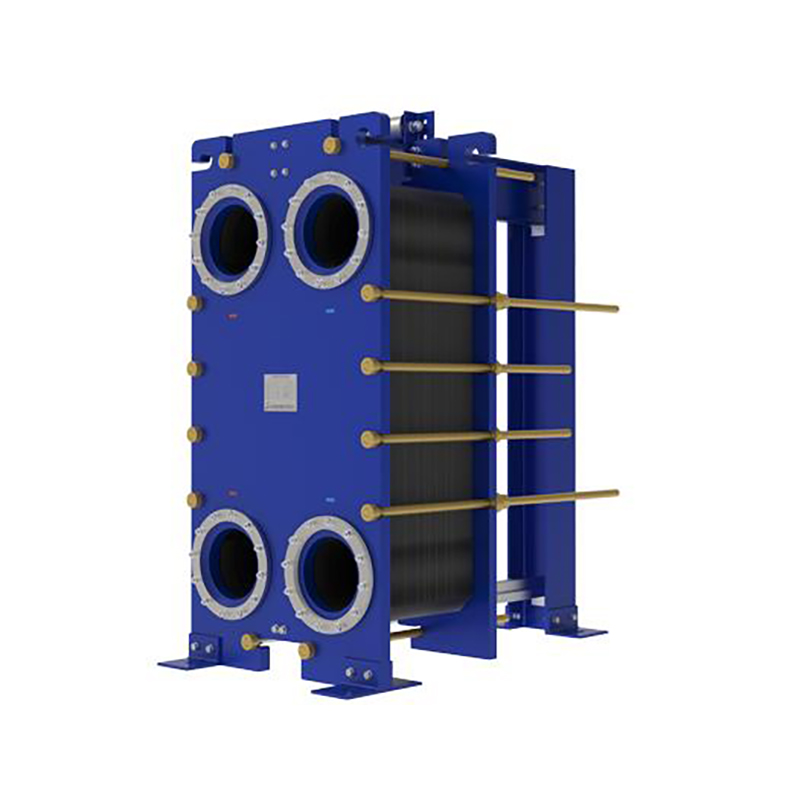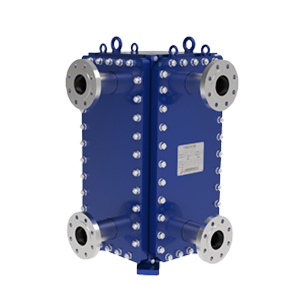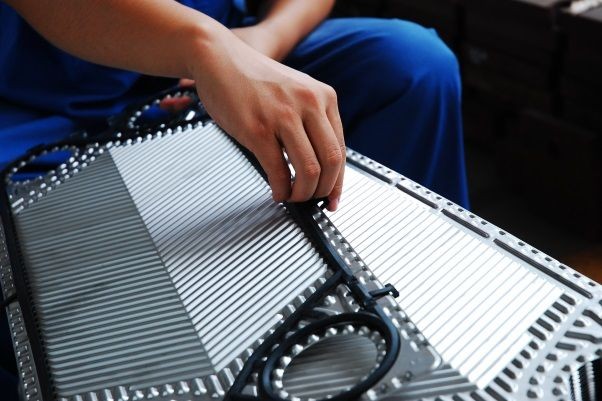How to choose the right plate heat exchanger gasket for your system
Shanghai Heat Transfer stands out with its ISO9001...
More
A Flue Gas Condenser is an energy recovery heat exchanger designed to capture the latent and sensible heat from exhaust flue gases. This process involves cooling the gases below their water vapor dew point, allowing the回收 of a significant amount of energy that would otherwise be wasted. By condensing the water vapor present in the combustion products, these systems not only improve overall thermal efficiency but also reduce emissions and operational costs. They are a critical component in modern, high-efficiency heating systems, including condensing boilers and industrial processes, transforming waste into valuable energy savings and environmental benefits.
The core principle of a flue gas condenser revolves around heat exchange and the phase change of water vapor. In any combustion process, a substantial amount of heat is lost as hot water vapor in the exhaust gases. A flue gas condenser tackles this loss by channeling the hot flue gases through a heat exchanger. Meanwhile, a cooler fluid, typically the system's return water, is circulated on the opposite side of the exchanger. As the hot gases come into contact with the cooler surfaces of the heat exchanger, they are forced to give up their thermal energy. The critical action occurs when the gas temperature is cooled below its dew point, typically around 55°C (131°F) for natural gas combustion. At this point, the water vapor within the gas condenses into liquid form, releasing a large amount of latent heat. This latent heat, combined with the sensible heat from cooling the gases, is transferred to the cooler fluid circuit. This recovered energy is then reintroduced into the heating system, pre-heating the return water and significantly reducing the primary heater's workload. This process dramatically increases the system's overall efficiency, often allowing it to achieve thermal efficiencies exceeding 100% on the lower heating value (LHV) basis, as it utilizes heat that is not accounted for in the traditional LHV calculation.
The implementation of a flue gas condenser is driven by the compelling economic and environmental advantages it delivers. Utilizing this technology is a direct response to rising energy costs and stringent environmental regulations, offering a proven path to enhanced sustainability and reduced operational expenses. The primary motivation is the substantial recovery of waste energy that is otherwise vented into the atmosphere. This recovered energy directly translates into lower fuel consumption for achieving the same level of heating output. For industrial applications and large-scale heating plants, this can result in dramatic cost savings and a swift return on investment. Furthermore, the process of condensation actively scrubs the flue gas, capturing particulate matter and absorbing acidic compounds and condensable vapors, thereby significantly reducing emissions of CO2, NOx, and SOx. This makes it an indispensable tool for companies aiming to lower their carbon footprint and comply with increasingly strict air quality standards.
Integrating a flue gas condenser offers quantifiable benefits that justify its use. Data from case studies and manufacturers show that these systems can improve overall boiler or heater efficiency by 10% or more, reducing fuel consumption by a corresponding amount. For a natural gas-fired system, condensing the water vapor can recover approximately 5.5 kW of heat for every kilogram of water vapor condensed. This leads to a typical payback period of 2-5 years depending on annual operating hours and local fuel prices. Environmentally, the reduction in fuel use directly decreases CO2 emissions. Additionally, the scrubbing action lowers the emission of nitrogen oxides (NOx) by up to 30% and almost entirely eliminates sulfur dioxide (SO2) if present in the fuel, as it dissolves into the condensate to form sulfuric acid, which must be neutralized. This combination of heightened efficiency, operational cost reduction, and demonstrable emission control makes the flue gas condenser a cornerstone of modern, responsible energy management in both commercial and industrial settings.
Select the most popular foreign trade service products to meet your diverse needs
Learn more about the dynamics and professional knowledge of the foreign trade industry

Shanghai Heat Transfer stands out with its ISO9001...
More
Plate heat exchanger gaskets perform 5 key roles: ...
More
A gasket in heat exchanger seals surfaces, blocks ...
More
You can see clear differences between welded block...
More
API 662 defines standards for plate heat exchanger...
More
Compare top frame plate heat exchanger models for ...
MoreSelect the most popular foreign trade service products to meet your diverse needs
Explore more content related to foreign trade services

User Comments
Service Experience Sharing from Real Customers
David Chen
Maintenance EngineerThis flue gas condenser has drastically improved our boiler system's efficiency. The heat recovery is exceptional, leading to significant fuel savings. Installation was straightforward, and the build quality is robust. A fantastic investment for any plant looking to reduce energy costs.
Sarah Wilkinson
Plant ManagerWe installed this unit to meet new environmental standards, and it has exceeded all expectations. It captures a remarkable amount of condensate and waste heat, which we now reuse. The reduction in our emissions and operational costs has been very impressive. Highly reliable.
Michael Rodriguez
HVAC TechnicianA very effective piece of equipment for increasing overall boiler efficiency. The corrosion-resistant materials are a great feature for longevity. We've noticed a tangible drop in stack temperature and higher system output. Would definitely recommend for commercial heating applications.
Emily Foster
Sustainability OfficerOutstanding performance from this condenser. It's a cornerstone of our carbon reduction strategy, significantly lowering our plant's environmental footprint. The data on energy recovery is consistently excellent, and it integrates seamlessly with our existing systems. Top-notch product.